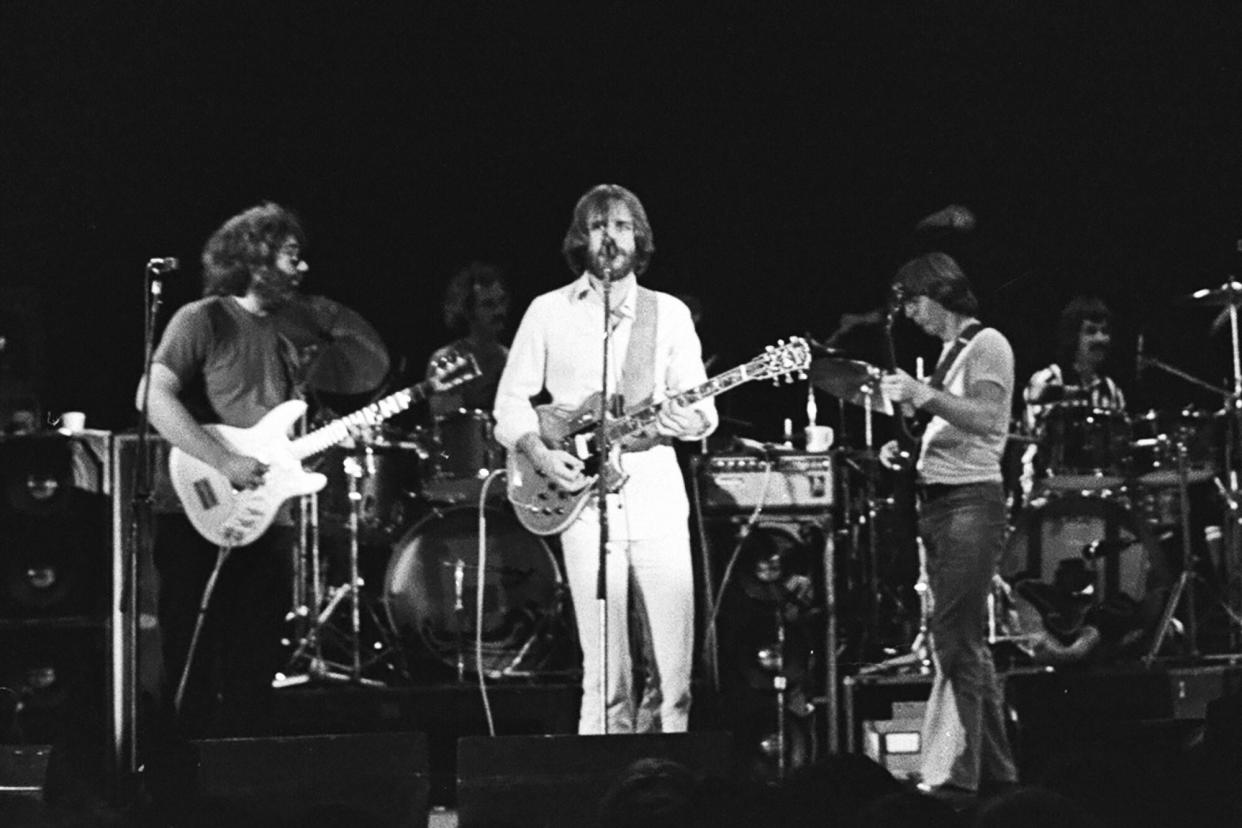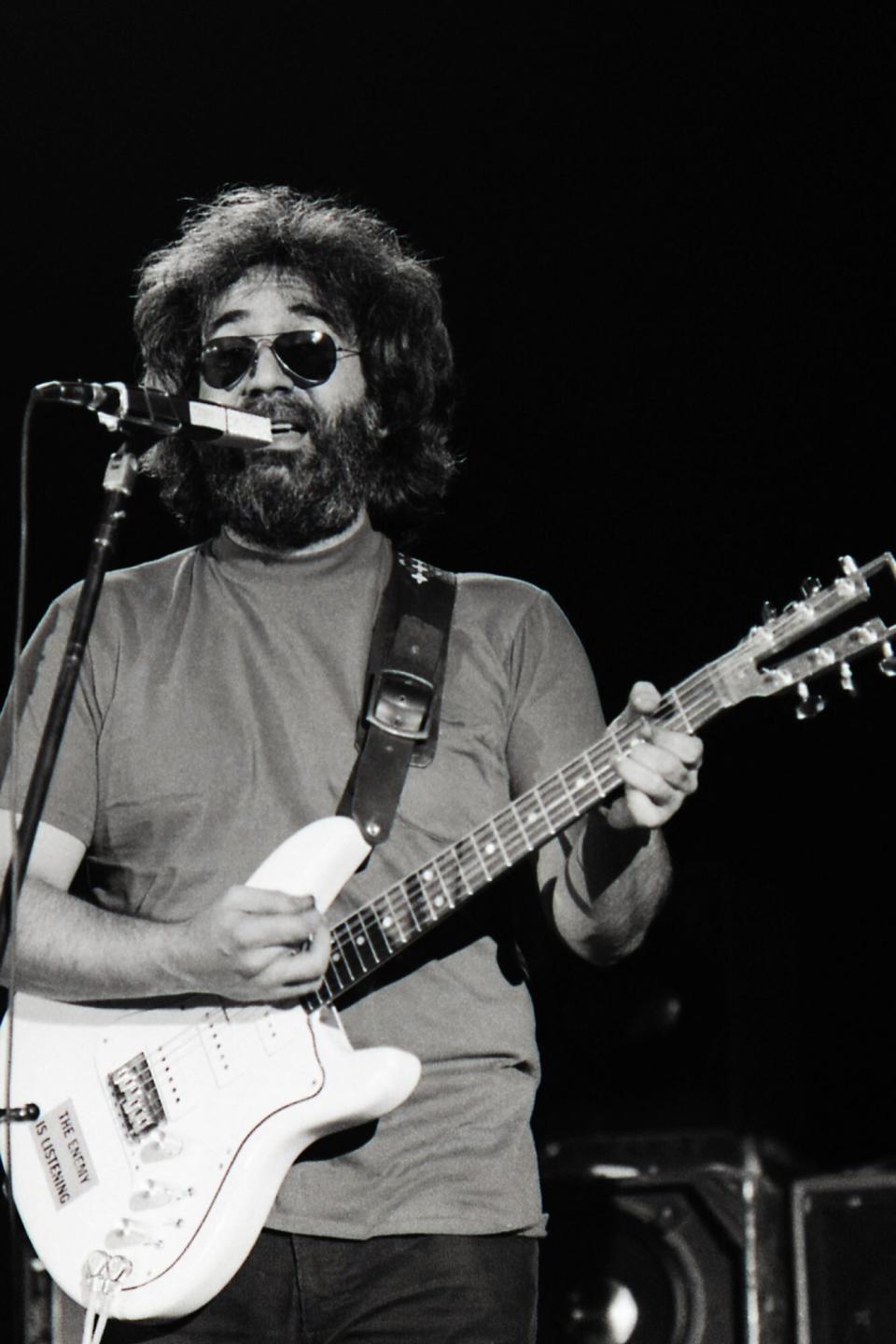Mickey Hart talks Grateful Dead's 'mystical' Cornell concert on 40th anniversary

- Oops!Something went wrong.Please try again later.
Lawrence Reichman
It's the eternal Deadhead debate: Which of the band's 2,000-plus shows was its finest? There's the primal explosion of Feb. 27, 1969, which became part of the Grateful Dead's first official live album, Live/Dead. Some stump for the psychedelic fever dream of Aug. 27, 1972, which became the basis for a documentary, Sunshine Daydream. Fans of their later work might make the case for one of the fall 1980 shows at Radio City Music Hall or for the Dead's Branford Marsalis collaboration at Nassau Coliseum on March 29, 1990. And then there are the personal variables: the first Dead show you heard, or the one you dropped acid at, or the one where you met a lifelong friend.
But one show often dominates such conversations: the Grateful Dead's legendary May 8, 1977 performance at Cornell University's Barton Hall, an event that celebrates its 40th anniversary Monday.
"I knew that we played well that night," drummer Mickey Hart tells EW. "It was a good show. I don't remember any bad shows on that tour. Obviously, this was one of those nights when everybody was in sync. The synchrony of it is really the story here: How many bodies can actually play like that and how in sync and intuitive [can they be]? It becomes a mystical thing after a while. You're dealing with a whole other consciousness once you get to that place. It's telepathy."
The masterful gig contains definitive readings of "Not Fade Away," "Scarlet Begonias > Fire on the Mountain," "Morning Dew," and more, and was even added to the Library of Congress' National Recording Registry in 2012. And while tapers have traded bootlegs of the concert since it took place, the show is just now receiving its first official release, as a standalone recording and as part of a boxed set including recordings of adjacent shows on May 5, 7, and 9. <iframe src="https://open.spotify.com/embed?uri=spotify:album:3T9UKU0jMIyrRD0PtKXqPJ" width="600" height="380" frameborder="0" class="" scrolling="no" allowfullscreen="" resize="0" replace_attributes="1" name=""></iframe>
Like many revered Grateful Dead shows, there's a compelling narrative to Cornell '77. After playing only four shows in 1975, the band had returned to the road the following year with an assortment of intricate, prog-inflected tunes from their new LP, Blues for Allah, as well as Hart himself, who had temporarily left the Dead beginning in 1971. They regained their sea legs in '76 and then recorded another album, 1977's Terrapin Station.
Those events contextualize the excellence of the spring '77 tour. "We really played very accurately and quick," Hart says when describing the effects of the Terrapin sessions. "We were pushing ourselves technically. You have to really be on your game when you're playing at those speeds. I think that's reflected in everybody's performance." And Hart cites jam sessions — sometimes topping 12 hours — at singer-guitarist Bob Weir's house during the touring hiatus as crucial to their subsequent synergy. "That really brings a band together," he says. "You bond in a different way than just [being] out there playing the music. Now it becomes a ritual — more of a spiritual thing as opposed to playing the notes."

Jon Reis
But there were personal reasons that elevated the spring '77 shows, too. "Jerry was real healthy," Hart says. "We all were motivated to play. It was one of those times where it was just right to tour. Everybody was feeling really good. That's what happens: You play good music when you're feeling really good." Because the band "didn't have big family commitments back then," they were able to be "road dogs" and go all-in on the Grateful Dead.
That evening in Ithaca, New York was particularly special, though. "We played 'Morning Dew' that night," Hart recalls. "I remember we kept going on and on and on. One thing started building over the other and the other." And because a rare May snowstorm barreled through the region as the Dead were playing, concertgoers were greeted with pristine snow as they exited the venue. "It was a very magical snowstorm," Hart says. "It was quite serene."
Decades later, though, one unexpected detail about the Cornell show sticks out for Hart. "My current wife was going to Cornell at the time in '77," he says. "She never made it to the concert. I met her in 1990, and we married. But it was so funny that she went to Cornell at that same time, and she didn't come to the concert. She maybe went to a Barry Manilow concert or something, I don't know. Maybe Kansas or somebody. I don't think she was even into the Grateful Dead then!"
All told, the longevity of spring '77 and the Cornell gig specifically doesn't surprise Hart. "We didn't know where we were going, nor did we care," says Hart, "but we knew we were evolving, and that was good." Not that he's especially familiar with the May 8, 1977 concert. "People love this, obviously," he says. "I've never heard it. I've never listened to it. But from what I hear, the deduction is this: It's spirit music."

